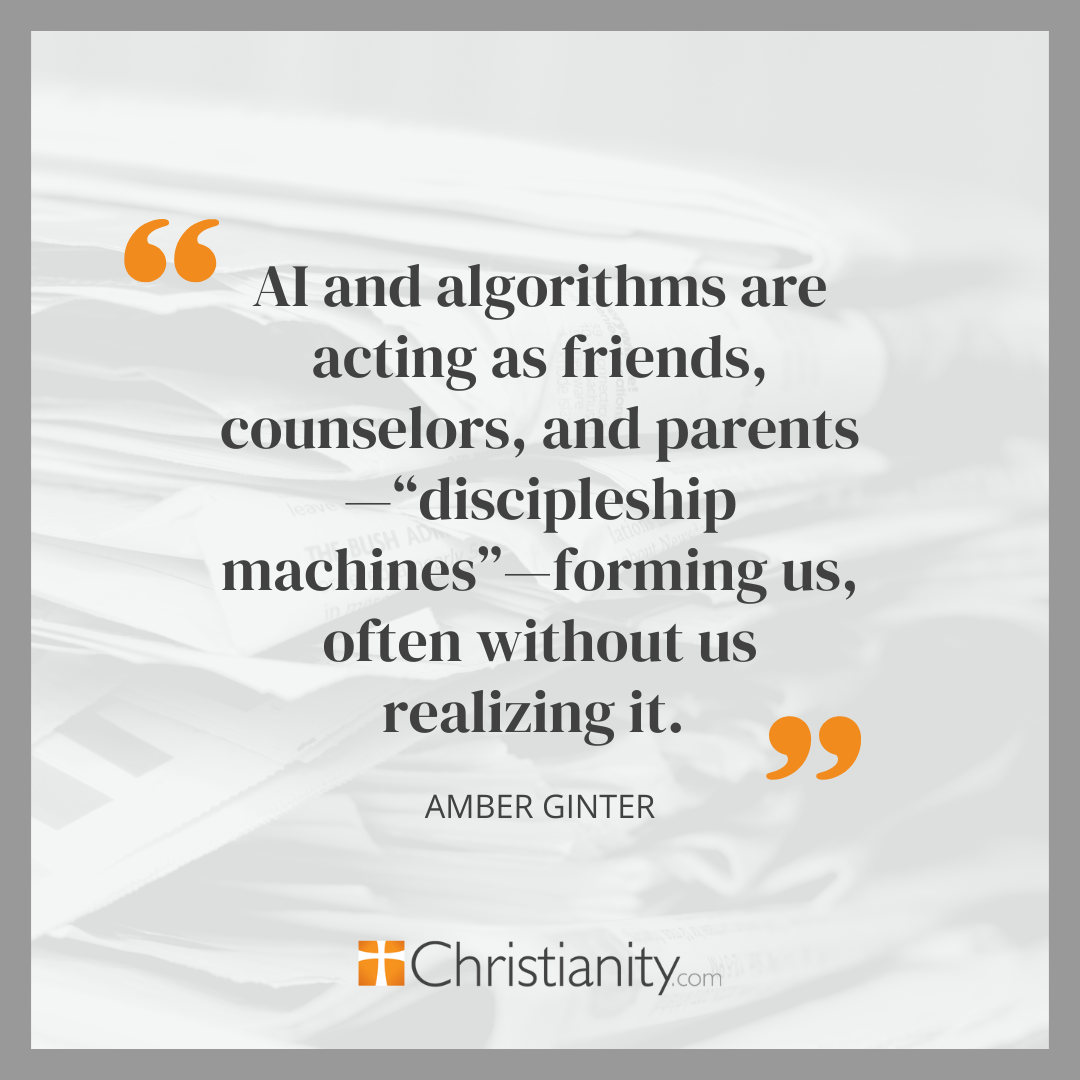In the hit song "O Be Careful, Little Eyes," by Cedarmont Kids, we read these words: "O be careful little eyes what you see. O be careful, little eyes, what you see. For the Father up above is looking down in love, so be careful little eyes what you see." Similarly, Matthew 6:22-23 and Luke 11 tell us that the eye is the body's lamp and that whatever we "see" will influence our lives for the worse or the better.
This tendency to watch what we "see" has recently gone viral. OpenAI has rolled out new parental controls for ChatGPT, allowing families to filter content and set usage limits for children. With good intentions, this move responds to growing concerns about young people’s exposure to inappropriate or misleading content in AI tools. Talk about learning to watch what our eyes take in! While safeguards are helpful, experts note that no filter replaces the need for parental involvement, wisdom, and discipleship in navigating technology. Filters can serve as protective measures; however, children still need direct guidance—lives modeled by example. But it's not just children at risk- AI will be further regulated in the future, so it doesn't give bad mental health counsel.
Growing concerns are arising not just with young people's exposure to harmful content online, but with all of us. I don't have to tell you that AI is virtually becoming the next Google, and everyone is using it. The role of AI is quickly shaping and transforming thoughts, but as Matthew 6 references, are these thoughts and information for the worse or the better? Again, these pressing trends are increasing the need for regulation to protect our mental states. While filters and safeguards are tools, they cannot substitute Godly wisdom, discernment, and face-to-face discipleship.
Today, this raises a bigger question for Christians: As AI grows more powerful in shaping thought and imagination, how can we guard our hearts with filters, truth, presence, and a vision rooted in Christ? How do we guard our minds in a digital age where screens and algorithms influence much of our thinking?
The Power and Peril of the Digital Age
Sadly, while technology is invaluable, it's rapidly shaping imagination and mental health. According to Harvard Medical School, while information is more readily accessible and available at our fingertips, “It’s not how long we’re using screens that really matters; it’s how we’re using them and what’s happening in our brains in response.” Yes, most of us have a problem spending too much time scrolling on Facebook, TikTok, and Instagram, but the deeper issue stems from what information we're receiving. At the top of these concerns is misinformation, comparison culture, and doomscrolling.
Not only that, but recent studies show AI and algorithms are acting as friends, counselors, and parents—“discipleship machines”—forming us, often without us realizing it. The Conversation notes that "AI systems are already too much like humans. " While good social skills can be learned, robots are not replacements for human interactions.
Romans 12:2 speaks to this concept with these words: "Do not conform to the pattern of this world, but be transformed by the renewing of your mind. Then you will be able to test and approve what God’s will is—his good, pleasing and perfect will" (NIV). This verse doesn't speak against using modern-day technology or advanced technology, but it warns us: Guarding our minds is not optional; it’s essential to Christian discipleship. And human flourishing must be based on and formed through and with something more profound than a screen.

What Filters Can and Can't Do
In terms of AI regulation, filters are valuable tools for monitoring content or reducing the amount of time kids spend using them. Parental controls, content settings, and screen time limits are helpful. But they cannot replace presence, wisdom, and truth.
From the beginning, Genesis reminds us that we were not created to do life alone. Regarding technology, we must remember that while it's a helpful tool, it's not and should never replace human interaction; even the most introverted of us need human companionship. In a study conducted hundreds of years ago, two samples of babies illustrated this point. One group was given human touch and affection in addition to their basic needs, and the other was not. The study was quickly halted when the babies of the no-affection group were dying. While this example is horrifying and disturbing, it raises a valid point: parents, mentors, and the church community should walk alongside kids (and anyone) as they navigate life. Technology is not a replacement.
Second, AI is not a valid source of truth. It can help us find research (but always fact-check), but we must not allow it to think exclusively for us. If we lose the power of critical thinking, this will prevent us from anchoring ourselves in God's Word, not just human hearts. Proverbs 4:23 warns against this well: "Above all else, guard your heart, for everything you do flows from it" (NIV).
Biblical Ways to Guard Your Mind
We know the facts, but what can we as Christians do about this problem practically?
First and foremost, we must learn to anchor ourselves in Scripture daily. Psalm 1:2-3 says, "but whose delight is in the law of the Lord, and who meditates on his law day and night. That person is like a tree planted by streams of water, which yields its fruit in season and whose leaf does not wither—whatever they do prospers" (NIV). This is a beautiful reminder, reflection, and parallel of Colossians 3:16—to let the Word of Christ dwell richly in us and formulate how we live our lives.
Second, we must learn to think for ourselves by practicing discernment. Hebrews 5:14 tells us that mature faith discerns good from evil. ChatGPT and AI can be helpful, but we must remember they are tools, not the Gospel truth. This is why 2 Corinthians 10:5 tells us to take our thoughts captive. No matter where we get our information, we must bring every emotion, fact, and thought to the Lord and His authority.
Third, one of the best ways I've found to use AI without overuse effectively is by limiting input wisely. I'm not saying you can't use OpenAI at all, but put time limits and restrictions into effect. At the end of the day, we need to focus on what is true, noble, and pure, as Philippians 4:8 references. This could include embracing rest and silence into your practical rhythms (Mark 1:35, just like Jesus) and choosing in-person community over isolation or online companions (Hebrews 10:24-25).
Beyond Filters to Formation
Friends, Christian formation is more potent than any algorithm could ever provide. Beyond filters, we must seek and strive for soul-deep formation. Together, parents, leaders, and believers must go beyond tech solutions to holistic discipleship. If this is something you, your family, or kids struggle with, try asking these reflective questions:
-What am I allowing to shape my imagination?
-Do I go to AI first, or the Lord?
-Does my time online draw me closer to Christ or away from Him?
-Am I seeking wisdom from Scripture or worldly trends? After reflecting on these questions, set one intentional “digital Sabbath” this week to reset your heart and mind. Ask the Lord for wisdom on addressing these issues, and speak to your heart clearly.AI safeguards are helpful, but only Christ can truly guard our hearts and minds.
A Prayer for Digital Protection
Dear Jesus,
In a digitally advancing world, please guard our hearts and minds. Protect us and help us discern your truth. As we seek your presence, root our vision in you and your Word. May our thoughts be renewed as we seek to become more like you. Let us not be transformed by the world around us but by you within us. We love, praise, and thank you, Lord.
Amen.
Photo Credit: ©Getty Images/Delmaine Donson





